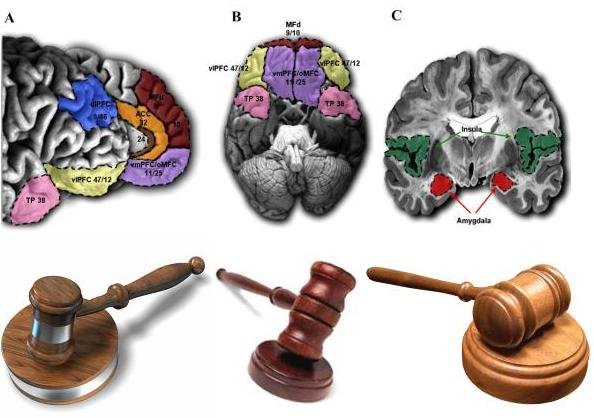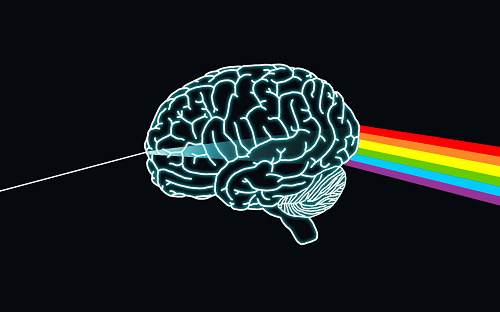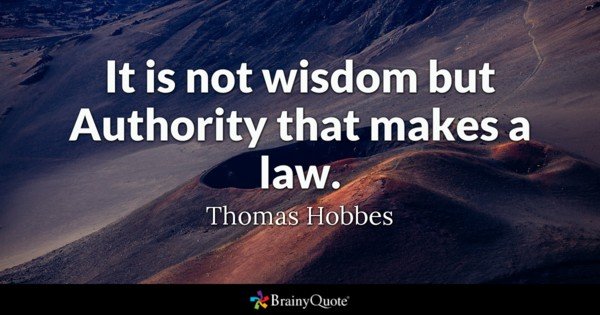The Association That Psychology and Law Has

Image Source
Psychologists and lawyers are both firmly worried about human behavior, it might come as something of an unexpected that the utilization of psychology to legal issues is genuine. This is on the grounds that, despite the fact that their topic may cover, their points are altogether different and their methodologies fluctuate. The psychologist's worry with scientific thoroughness appears differently in relation to the lawyer's normally sound judgment psychology and the dependence put on their involvement and legal points of reference.
While psychology is portrayed by exact strategies and scientific investigations, law utilizes its inside systems to examine its legal procedures, which have developed. It has likewise been the case that law has stayed doubtful of the capacity of controls, for example, psychology to have anything to offer.
Psychologists are working in a joint effort with individuals from the legal profession. Specialist gatherings give a discussion to psychologists and individuals from the legal profession to meet up and speak with each other. There has been a development in both the number of postgraduate courses in forensic psychology, and the number of psychology or law degrees that incorporate a choice in psychology and law.
Terms describing psychology to law:
- Legal Psychology
- Criminological Psychology
- Psychology and Law
- Forensic Psychology

Image Source
Witness Evidence and Identification
Witnessing somebody taking from a shop is an alternate ordeal from witnessing somebody physically striking someone else, and being a victim of a handbag snatch is altogether different from being a rape victim. While the discoveries from research in one specific setting are not really generalizable to all crime situations, they have given data of utilization to the legal system and have shown manners by which the unwavering quality of witness testimony can be improved, both in the police station and in the courtroom.
The exactness and unwavering quality of witness testimony can be additionally influenced in a number of courses, some of which are under the control of those professionals directing the examination, scrutinizing the witness and acquiring the evidence. The manner by which the police question a witness and the procedures for requesting that a witness recognize a culprit in a live identification march are both open to variety. These are known as system variables, and research on such variables can have policy suggestions in the event that one set of procedures is observed to be more powerful in inspiring exact evidence at that point, apparently, it ought to be received as regular practice.
Different elements that may impact the unwavering quality of testimony can't be changed, regardless of whether the culprit was wearing a mask or situated too far from the witness to allow later identification. These are known as estimator variables. Despite the fact that research on estimator variables can't be utilized to adjust policy, the discoveries can by and by be of help, for instance in deciding if a witness is probably going to have the capacity to recognize the culprit accordingly.

Image Source
Forensic Psychology
Research did in forensic psychology has not abandoned feedback, for example, research that has included simulations in the laboratory has been addressed on the grounds of its ecological validity. For instance, on the grounds that the law confines access to genuine hearers for research purposes, the jury decision-making process has been examined much of the time by requesting that psychology undergraduates read a genuinely short composed portrayal of a criminal case and to settle on choices about the plea of the defendant and, on account of guilt, the sentence that ought to be forced.
The identification of culprits has been considered by indicating members a short video of an arranged crime situation and after that later soliciting them to choose a photo from the culprit from a variety of photos. Psychologists themselves have wrangled about the viable utility of the discoveries of such examinations. Researchers have reacted to reactions by supplementing these somewhat fundamental simulations with considerably more advanced ones that have more prominent ecological validity, and by talking genuine witnesses to crimes and genuine members of the jury after they have served in a court case.
Moral issues are vital, even in more advanced ways to deal with research. By its extremely nature the experience of crime is frequently terrifying and might be agonizing. Researchers confront serious points of confinement, in any case, on the degree to which they can copy such parts of the experience of being a witness or victim.

Image Source
References:
Handbook of Psychology in Legal Context
Psychology and the Law
Forensics, Criminology and Law
Psychology and Legal Change
Child Witnesses in Court and What Really Happened
Eyewitness Evidence
Eyewitness Memory - System Variables
Forensic Psychology
Ecological Validity
Posted from my blog with SteemPress : https://steemme.000webhostapp.com/2018/07/the-association-that-psychology-and-law-has
I’ve taken classes and have friends working towards or practicing law. I also found this an interesting read as a graduate student of psychology-so I felt a desire to share a thought. Personally, i think eye witness testimony is one of the most annoying, ironic and almost paradoxical aspects of the US judicial system. On one hand, studies have shown eye witnesses are very easily manipulated and influenced (e.g. cops interrogations, cross examining, etc) which are common goals of both the defendant and plaintiff or police/etc. on the other hand If you had some sane and typical adult promising they saw an individual-Id likely struggle denying of their claim. After all, if not seen then what are some “objective” individual-based accounts? lol
Downvoting a post can decrease pending rewards and make it less visible. Common reasons:
Submit